How to Hire a Training Provider

FREE Training, Event Dates, Discount Codes >>
As a management training provider, we regularly converse with company representatives who are tasked with sourcing training.
As you are reading this guide, we will assume you are in the process of searching for a training program.
To make the job easier, we’ve put together a guide that will give you a head start on your planning.
What follows is a collection of “best practices” that will be useful in organising your next event.
Obviously each scenario is different and you may have your own thoughts on the matter. Our advice is to apply what fits and discard the rest.
Regardless of your approach, it is critical to understand the key drivers behind your training need for the purpose of finding a solution.
The Advantages of an External Training Provider
One of the best ways to build organisational capability is through dynamic training.
By working with a reputable provider, you not only gain access to the expertise and experience of expert facilitators, but also the reassurance of the quality of content.
The needs of individual trainees can vary- some require skill building activities, while other employees are capable, but simply need a motivational nudge in the right direction.
There may even be team members who simply can’t (or won’t) improve, and workshop style training would not be effective.
Importantly, a reputable training provider will advise on a range of programs with options to suit.
Proven Methods
To put it simply, professional providers use proven methods to help learners learn.
Furthermore, their trainers create dynamic experiences where participants can learn new skills complemented by a sense of achievement.
These providers will thoroughly assess your training needs and advise on a suitable plan. They will ensure your budget is used efficiently and that learning resources are effectively allocated for maximum impact.
Ultimately when you engage a professional training company you can expect a well structured program designed to impart the relevant knowledge and skills.
As an example, Aptitude Management courses include precourse contact with each participant followed by post-program coaching sessions.
Your Training Budget and Objectives
When sourcing training, it is advised to have an approximate budget in mind. With multiple options available, the cost associated with training your team can differ.
Accordingly, you need to make sure funds are spent wisely. You don’t necessarily want the “lowest price”, but rather excellent value and results.
Remember, your the goal is to up-skill your people. This means training needs to be suitable to achieve this. Ensure you have the appropriate budget in mind before engaging with a provider.
To emphasis, there’s no point in spending funds on a lower cost alternative if your team can’t apply what is taught.
Learning and Development Objectives
Having allocated a learning and development budget, the next step is to clarify your objectives.
A good training representative will ask you a series of questions about your training needs. It is important for them to determine if your organisation is a good match with what they offer.
This will include a discussion about noticeable performance gaps, observable workplace challenges, and specific goals you would like to achieve.
The more preparation put into the needs analysis stage, the more likely you are to gain a greater outcome.
If both parties don’t have a clear idea of the training need, it will be challenging to provide a program that delivers results.
Aptitude Management helps with your training needs analysis by using specific processors that identify skills gaps and set strict learning and developmental goals and objectives.
What questions should you ask when selecting a training provider?
Once engaged in conversation, you also need to learn about the potential provider. Booking in corporate training is a two way street and needs to be a good match for both parties.
There are specific questions you should ask to ensure you work with a company who is qualified to deliver on results, and provide your team with training that makes a difference.
Firstly, what specific types of training do you offer and what makes you unique?
One of the first questions to ask when considering an external provider is about the specific types of training they offer. This will help you determine if it is relevant.
We suggest you further inquire about how their offering is unique and how they differ to the competition. In essence, why should you hire them?
For example, Aptitude Management provides solution focused training designed for mid-level leaders.
Our training philosophy is based around three core values:
- Retention: the retention and internalising of course materials.
- Reinforcement: the application of learned concepts to real life scenarios.
- Reinvigoration: personal empowerment to enhance one’s desire for ongoing future growth and development.
All training programs with Aptitude Management also include: A conversation with the trainer beforehand for each participant, personal action participant training plans and individual post workshop coaching sessions.
How do they source their training material?
Another question to ask is how the training provider obtains their course material. Ask if programs are written in-house or sourced from an external vendor?
More importantly, will they work with you to modify existing materials as needed- or simply sell you a pre-written package? Don’t forget to ask about the costs associated with modifying their programs (if applicable).
How will they determine a suitable trainer that meets the needs of your team?
Ask if the provider has a list of preferred trainers and how they source them.
Undeniably, there are some great trainers out there who could significantly help your team, however, others may not be a good fit for your people.
Don’t forget to also ask about their experience and credentials.
What will happen if we are unsatisfied with the training?
What if the training program was unsuccessful? Perhaps irrelevant material was taught or the trainer failed to engage the team.
If this occurs what are your options moving forward- new course delivered, credit note, refund etc?
The Length of your Training Program
Finally, you should determine the length of the training. This will depend on two factors: how essential the new knowledge & skill is and how long it will take to acquire.
Once again, this is where a good professional can assist. They will provide advice and guidance on the best mix of training to help you achieve your goals.
The suggested package will include the number of training sessions required (these can vary from half day, to full day or over multiple days), your specific needs, delivery format and team availability.
One size does not fit all when it comes to dynamic corporate training.
Where to now?
Listed are important points you should consider when planning your next event. Hopefully, this guide has provided you with some helpful insight.
If you need training and are interested in working with Aptitude Management, simply contact us on 1800 753 087. We are more than happy to discuss your options.





